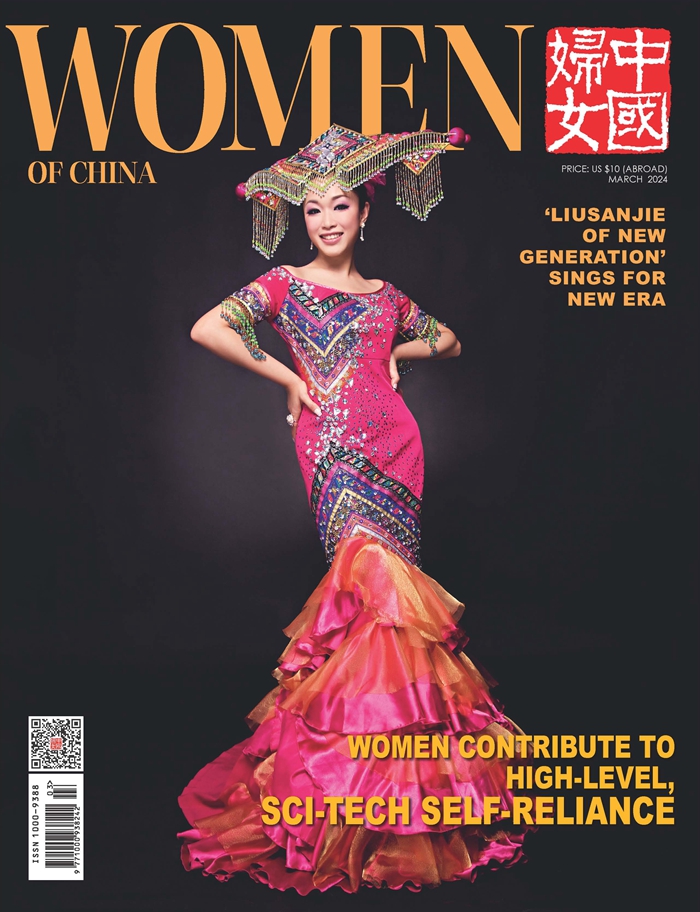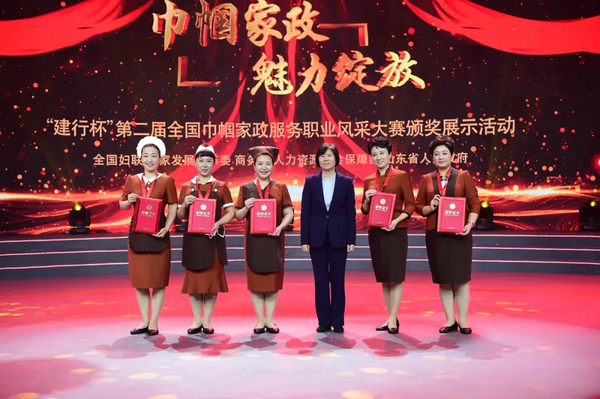"I want to say this award is not only a great honor for me, but also an affirmation of my team, and even more an incentive for the rapid development of hematopoietic stem cell transplantation in China," says Huang Xiaojun.
SAN ANTONIO, the United States, Feb. 25 (Xinhua) -- Chinese scientist Huang Xiaojun won a top international award here on Friday for his groundbreaking work known as Beijing Protocol in the transplantation and cellular therapy.
The esteemed professor, an Academician of the Chinese Academy of Engineering and Director of the Institute of Hematology at Peking University, received the prestigious annual Center for International Blood and Marrow Transplant Research (CIBMTR) Distinguished Service Award during the 2024 Tandem Meetings.
This event serves as a platform for leading global experts to collaboratively share crucial insights dedicated to enhancing and preserving the lives of individuals grappling with blood-related disorders.
"I am deeply honored," said Huang in his remarks. "I want to say this award is not only a great honor for me, but also an affirmation of my team, and even more an incentive for the rapid development of hematopoietic stem cell transplantation in China."
Huang established a series of key techniques of non-T cell depleted haploidentical transplantation, which gradually developed to the novel G-CSF/ATG based Beijing Protocol, increasing the 3-year survival rate from approximately 20 percent to about 70 percent in haploidentical transplantation treating leukemia, Michael Verneris, chair of the Advisory Committee of the CIBMTR, told the fully-packed meeting.

Huang Xiaojun speaks with a patient at Peking University People's Hospital in Beijing, capital of China, July 6, 2023. TO GO WITH "Chinese scientist awarded for groundbreaking work in transplantation, cellular therapy" (Xinhua/Zhang Yuwei)
Verneris reported that the Beijing Protocol techniques have been adopted in over 190 centers in China, resulting in a significant increase in haploidentical transplantation from almost zero to 65 percent by 2022. The protocol has also been extended to countries such as South Korea, Italy and France.
"Currently, it (the Beijing Protocol) is the most widely used haplo-HSCT system with the best curative effect around the world," the CIBMTR expert said, adding that Huang has also made remarkable contributions to promoting global cooperation in this field.
"This award will encourage me to make greater contributions to promote the development of hematology in China, and also promote the cooperation between China and the world in the future," Huang said.
The CIBMTR, initially set up in 1972, collaborates with the global scientific community to advance hematopoietic cell transplantation (HCT) and cellular therapy worldwide to increase survival and enrich the quality of life for patients, according to its website.
The 2024 Tandem Meetings on Feb. 21-24, co-organized by the American Society for Transplantation and Cellular Therapy and the CIBMTR, have attracted several thousand doctors, researchers and healthcare professionals from all over the world.
(Editor:Wang Su)








